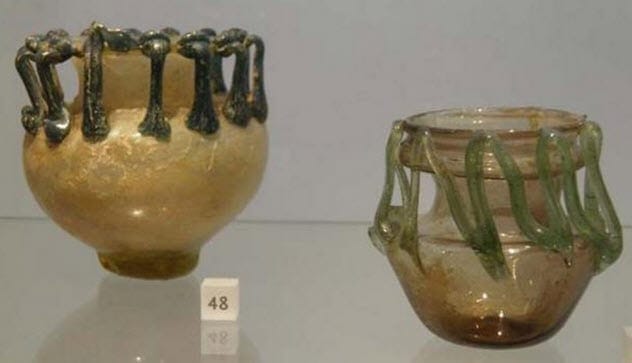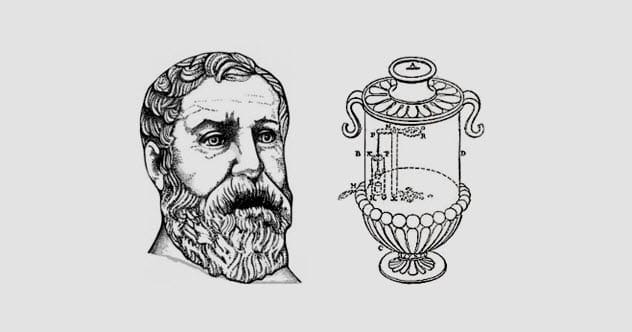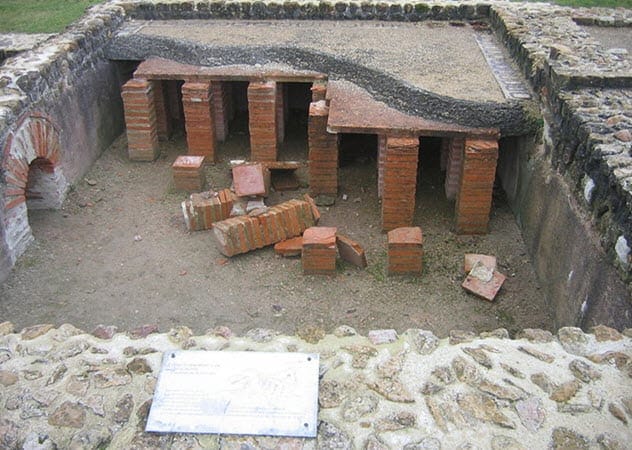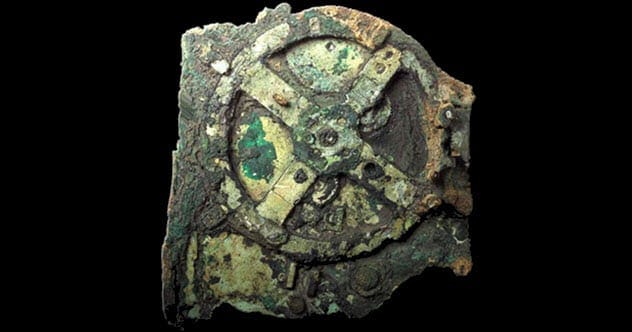Sometimes, an idea is so brilliant that it changes the world immediately. Other times, it takes a little longer for the world to catch up. Don’t be disappointed if your genius notion doesn’t impress people right away. It’ll get there, even if you’re not around to see it. Here are 10 ideas that were way ahead of their time.
Unbreakable Glass

Glass, discovered around 3600 BC in Mesopotamia, was initially a luxury item due to its fragility and production difficulty. An inventor in Roman times may have changed that. According to Pliny the Elder, this inventor presented Emperor Tiberius with unbreakable, flexible glass.
In one account, the inventor threw a new glass cup to the floor. To Tiberius’s astonishment, it only dented slightly. Tiberius, concerned that this would destroy the value of silver and gold, had the inventor beheaded.
While Pliny considered the story dubious, some believe the inventor created an early version of shatterproof borosilicate glass.
Atoms

Imagine cutting a cake repeatedly. Most ancient thinkers believed you could always cut it smaller. However, Democritus and Leucippus thought there was an “uncuttable” smallest piece, which they called atomos (Greek for “uncuttable”).
According to them, atoms come in various forms, and mixing them creates all visible matter (what we’d call molecules today). First proposed in the fifth century BC, the existence of atoms was doubted by some even in the late 19th century AD.
Epicurus even hinted at quantum theory, suggesting atoms moved in straight lines unless they randomly “swerved.”
Vending Machines

Heron of Alexandria, living in the first century AD, seemed to be brimming with genius. He invented many things that wouldn’t be seen again for nearly 2,000 years. One brought science and religion together. People would sometimes steal holy water, so Heron invented the first vending machine.
A worshipper deposited a coin into a slot, moving a lever that opened a pipe, releasing holy water. Once the coin fell, the water stopped, ensuring fairness for everyone.
Automatic Doors

Seven of Heron of Alexandria’s books still exist, filled with amazing inventions. While we associate automatic doors with shops today, Heron designed them to startle worshippers in temples.
In Heron’s design, the temple doors opened only when a fire was lit on an altar. The fire’s heat warmed the air in the altar, driving water into a bucket. The heavy bucket pulled a rope, opening the doors.
Steam Power
Heron’s inventions weren’t just religious tricks. One invention could have revolutionized the world. The 18th-century Industrial Revolution could have happened centuries earlier if Heron’s steam-powered inventions had taken off.
Heron understood that water expands when turned into steam. He created the aeolipile, a hollow ball with pipes. By producing steam and forcing it out, the ball would spin rapidly. Heron invented the first steam engine.
Unfortunately, the aeolipile remained a mere curiosity and was largely forgotten.
Contact Lenses

Eyeglasses were first used in Italy in the 13th century. However, glasses have drawbacks. Wouldn’t it be simpler to pop lenses into your eyes?
In 1508, Leonardo da Vinci described how plunging your head into water changes your vision. He designed water-filled funnels tipped with lenses. These were impractical.
Rene Descartes proposed filling a glass tube with water and attaching it directly to the eyeball. These would have been the first direct-contact lenses but would have prevented blinking.
To improve Descartes’s design, Thomas Young shortened the tubes, allowing the eyelids to close, but used wax to hold them in place. Contact lenses were a good idea, but technology hadn’t caught up.
Underfloor Heating

Fires are romantic but inefficient for heating homes. Most of the heat goes up the chimney. The Romans, not tolerating inefficiency, invented central heating for their homes.
They built villas with hollow spaces under the ground, supported by tiled pillars with gaps. These hypocausts allowed hot air to pass through. A fire was channeled into the hypocaust, warming the home from below. Air was also drawn through channels in the walls, warming the whole home.
When the Roman Empire collapsed, hypocausts fell out of fashion, and Europe became much chillier for centuries.
Flushing Toilets

Toilets are always a good idea. Contact with human waste is a major cause of illness, so moving sewage away from living areas should be a priority.
For most of history, people used holes in the ground or pottery vessels emptied into the street.
In 1700 BC, the Minoan Palace of Crete had toilets that used running water to carry away sewage, possibly the first flushing toilets.
Communal toilets with running water existed for centuries, but modern flushing toilets in homes came much later, along with soft toilet paper.
Computer
In 1822, Charles Babbage presented his idea for a mechanical computer to the Royal Astronomical Society. He aimed to create a machine to perform repetitive calculations faster and more accurately than humans, avoiding errors in mathematical tables.
Babbage’s difference engine, made from 8,000 bronze parts and weighing five tons, would have printed out mathematical results. He secured £17,000 from the British government but still couldn’t complete it.
His designs were only made in the 1990s, proving that Babbage’s calculations were correct—his difference engine would have worked.
Computers (Again)
Charles Babbage’s machine wasn’t the first of its kind. Corroded metal lumps were pulled from an ancient shipwreck off Antikythera in 1900. Historians were puzzled until X-rays revealed their secrets.
The Antikythera mechanism, made around 100 BC, consisted of at least 30 metal cogs in a wooden box.
The interlocking wheels, marked with symbols, calculated the positions of the Sun, Moon, and planets. By turning the wheels, users could see what the heavens would look like on any given night. It could even predict lunar and solar eclipses.
Nothing like it has ever been found again. Ancient writings hinted at similar objects, but they seem to have been lost to history.
These inventions show that genius sparks across time, but sometimes the world needs to catch up!
What do you think about these groundbreaking ideas? Share your thoughts in the comments below!










